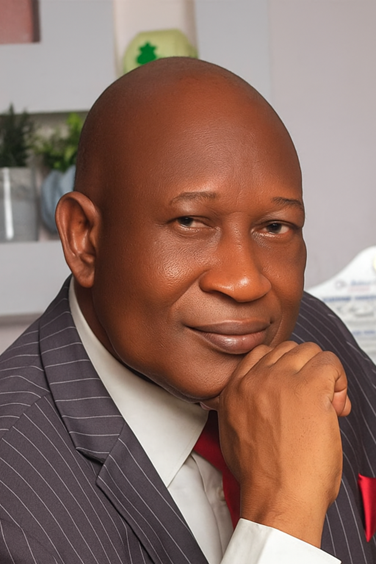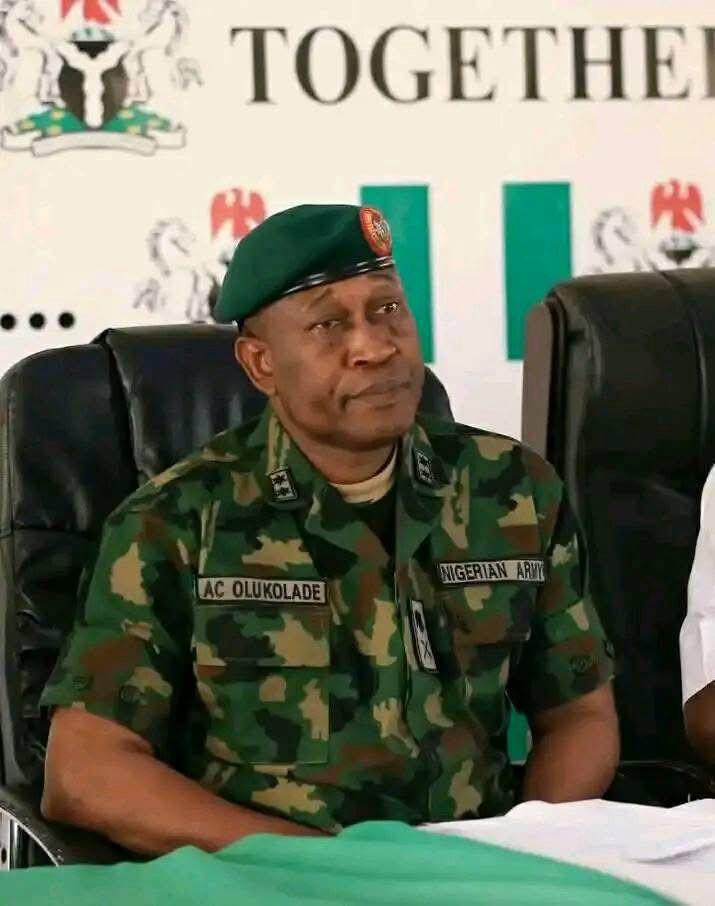
On parade grounds and in press rooms, in war zones and worship halls, Major General Chris Olukolade has lived a life that straddles two worlds: the rigid order of the military and the delicate art of public communication. For more than three decades, he was a soldier’s soldier — disciplined, strategic, and committed to the Nigerian Army’s mission. Yet, for millions of Nigerians, his most enduring image is not of a man in combat fatigues, but of a calm, articulate figure at a podium, explaining the nation’s security challenges with measured words.
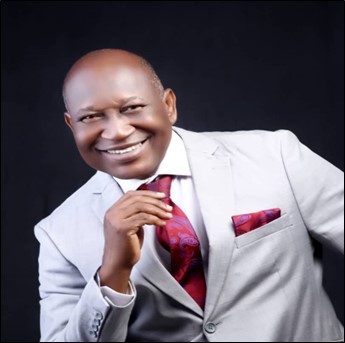
Major General Olukolade is best remembered as the Director of Defence Information (2013–2015), a period when Nigeria was in the throes of its fiercest battles against insurgency. As the face and voice of the Armed Forces, he bore the burden of shaping public understanding while managing the delicate balance between milita seery secrecy and national reassurance. His presence in those turbulent years earned him both admiration and criticism, but it also revealed a deeper truth: here was a man who believed that communication, like command, is an essential weapon of war.
Yet the story of Major General Chris Olukolade cannot be confined to press briefings or military operations. Behind the sternness of rank lies a softer portrait: a devoted husband and father, a man of faith, a writer and thinker, and a lover of simple joys such as jogging, badminton, and books. His life is a tapestry woven with threads of discipline, duty, integrity, and humanity — qualities that continue to define him in retirement as much as they did in uniform.
Early Life & Formative Years
Chris’ life began on 18 March 1959 in Zaria, Kaduna State, though his ancestral roots trace back to Idoani in Ondo State. His childhood was marked by the blend of northern openness and southwestern heritage, a cultural duality that later helped him connect with Nigerians across regions. From the very start, his parents set the tone for the kind of discipline and sacrifice that would define his career.
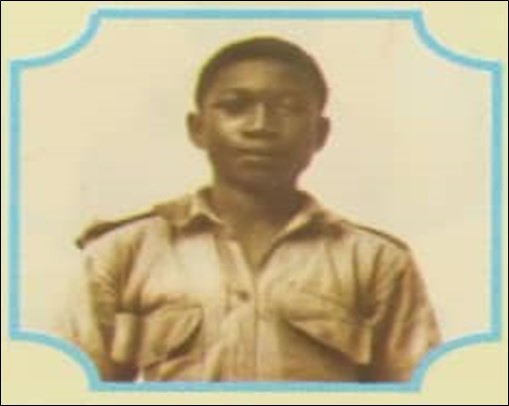
One story he recalls with striking clarity is the moment his father dropped him off at the Nigerian Military School (NMS), Zaria. As a young boy preparing to embark on a life-changing journey, Chris received a simple but profound charge: “Well son, you have chosen to be a property of Nigeria.” It was more than a father’s farewell; it was a solemn reminder that his personal ambitions were now tied to the fate of a nation. That phrase would echo through his years of service, shaping his understanding of duty as both a privilege and a burden.
At NMS, Chris discovered more than martial discipline. He found the beginnings of a lifelong passion for communication and storytelling. Writing articles for the school’s Junior Leader Magazine and participating in the Press Club, he sharpened skills that would one day make him not only a military officer but also one of the country’s most recognizable military spokespersons. For him, words were not merely tools for reporting — they were instruments of accountability, trust, and leadership.
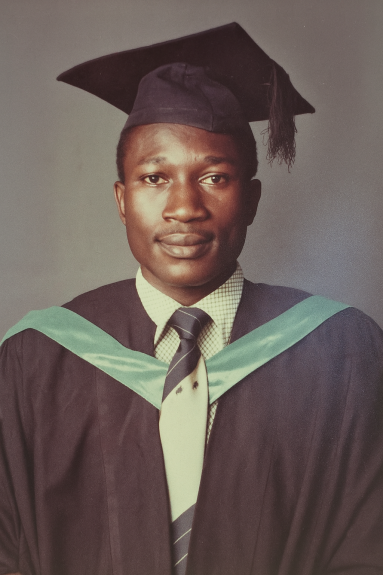
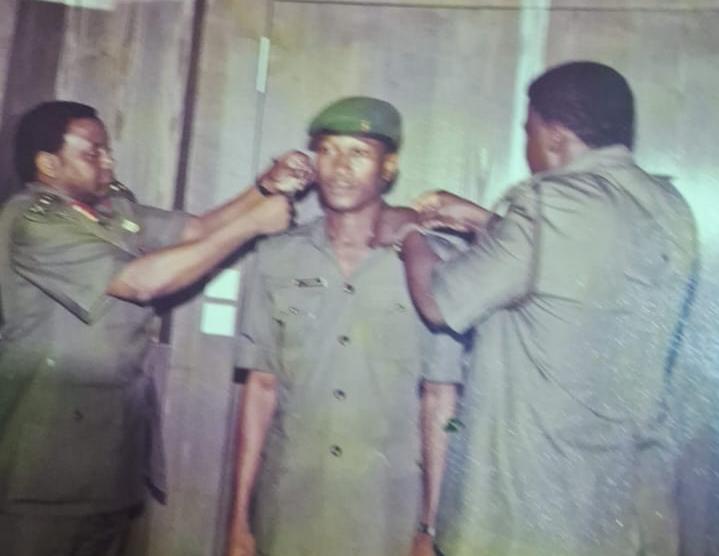
His formative years instilled in him two enduring convictions: that discipline is the bedrock of personal growth, and that communication is the bridge between action and understanding. These values, seeded in his youth, matured into the guiding philosophy of a career that would span more than three decades in the service of his country.
As part of his professional and capacity building, the Nigerian Army gave him the platform to merge his career as a soldier with his lifelong passion for communication. Beyond affording him a university education, the turning point came when Major General Olukolade was trained at the United States Defence Information School (DINFOS), Indianapolis—an experience that profoundly shaped his dream of becoming a military information communicator.
At DINFOS, the emphasis on transparency in the management of public information for the military left a lasting impression on him. From his early training at the Nigerian Military School to his exposure at DINFOS and other institutions across the world, he derived and held on to the principles of information dissemination—security, accuracy, policy, and propriety.
He would always make references to one of his DINFOS instructors, Captain Sawyer, who once narrated the biblical story of Aaron, describing Aaron as the first public relations officer appointed to speak for Moses, who though a leader, faced communication limitations. Major General Olukolade also spoke of another of his instructors, Professor (Mrs.) Hall, who also observed that while professions like medicine or law might lose relevance in heaven, communication would remain eternally indispensable. Those remarks inspired his enduring commitment to the noble craft of managing information, especially in the demanding environment of military service.
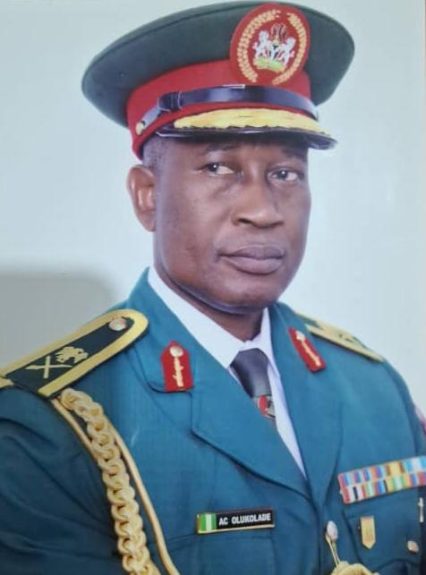
Major General Olukolade is also an alumnus of the prestigious National Institute for Policy and Strategic Studies (NIPSS), Kuru, Jos—Nigerias foremost centre for high-level policy formulation, strategic studies, and leadership training. The Institute, widely regarded as the nation’s apex think tank, brings together senior military officers, top bureaucrats, seasoned civil servants, and influential private sector leaders in a unique environment designed to sharpen strategic vision and national policy capacity. His training at NIPSS further broadened his outlook on governance, security, and national development, complementing his extensive military and communication expertise.
Major General Chris Olukolade became a Fellow of the Nigerian Institute of Public Relations (NIPR) in 2009, following years of consistent involvement and contributions to the institute’s activities. His participation included attending and speaking at key NIPR events, engaging in policy discussions, and supporting the professional development of public relations practice, particularly within security and defence communication.
Through his work as a military spokesperson and Director of Defence Information, he demonstrated the application of PR principles in high-pressure national contexts. His continued engagement with NIPR after attaining fellowship status has included mentoring, advocacy for ethical communication, and promoting collaboration between public institutions and the PR profession.
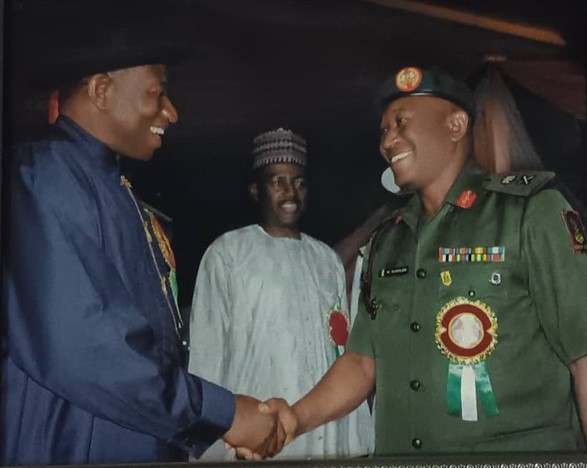
Military Career & Rise in Service
Major General Olukolade was commissioned as a Second Lieutenant in 1982, even while completing his Bachelor of Arts in English Studies at the University of Ife (now Obafemi Awolowo University). The dual pursuit of academics and military training reflected his determination to balance intellectual rigor with professional duty. Over the years, his career assignments revealed a clear pattern: he was both a soldier of action and a communicator of ideas.
He served in various roles in public relations and command: Army Public Relations Officer, Assistant Director of Army Public Relations in multiple formations, and Military Public Relations Officer to the Chief of Defence Staff. He also worked as Special Assistant to the Military Administrator of Sokoto State (1994–1996).
In the late 1990s, his path took him beyond Nigeria’s borders. He became the Spokesman and Chief Military Press Information Officer for ECOMOG during peacekeeping operations in Liberia and Sierra Leone. There, he coordinated communications at a time of high tension when the Force Headquarters relocated from Monrovia to Freetown. These postings sharpened his crisis communication skills and exposed him to the complexities of multilateral military operations.
By 2013, he had risen to the rank of Major-General and was appointed Director of Defence Information at a time when Nigeria’s battle against Boko Haram insurgency reached fever pitch. Night after night, Nigerians watched him address journalists, clarifying operations, countering misinformation, and projecting calm in the face of national anxiety. His tone was measured, his answers careful, and his presence reassuring.
Recognition followed. He was named West Africa’s Best Security Information Manager by Security Watch Africa in Johannesburg, and his stewardship of the Forum of Spokespersons of Security and Response Agencies (FOSSRA) cemented his reputation as a leader who valued collaboration across institutions.
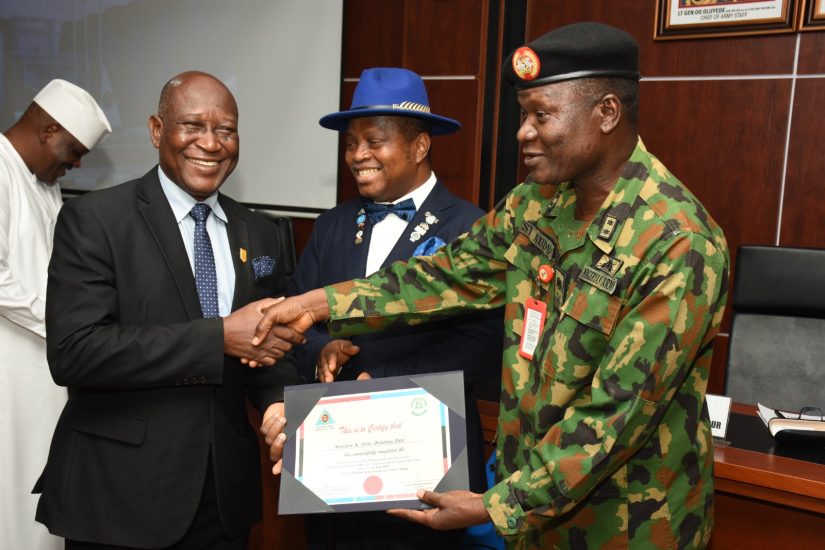
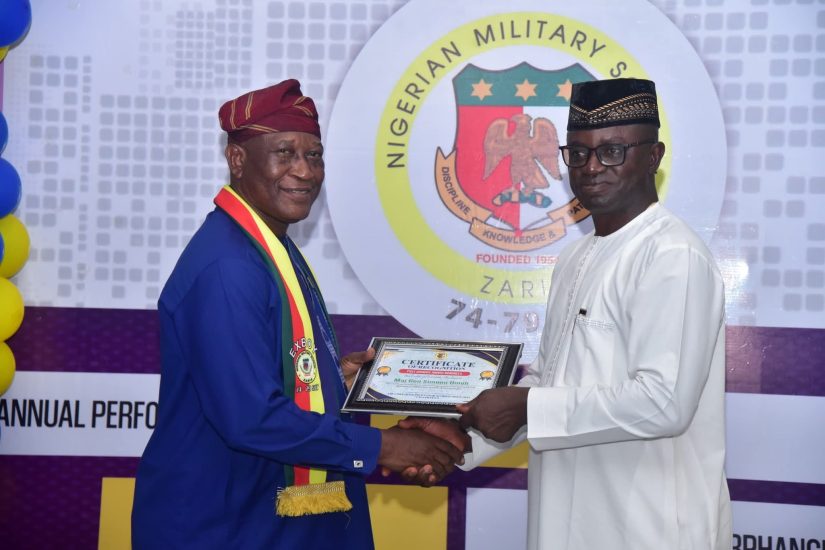
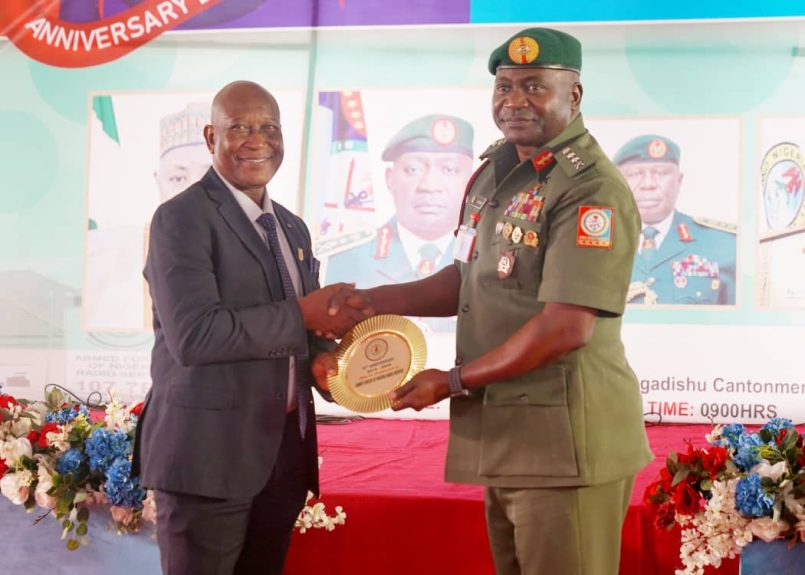
The Voice Beyond the Uniform
Retiring voluntarily in 2015 after 36 years of service, Major General Olukolade left with his record intact. But retirement did not silence his voice. Instead, it gave him a broader platform.
He became Chairman of the Centre for Crisis Communication (CCC), where he championed inter-agency collaboration in Nigeria’s fractured security sector. At public forums, he stressed that “no security institution should work in isolation,” urging greater intelligence sharing and operational synergy.
He also spoke on the need for localized, community-driven security approaches, arguing that Nigeria’s over-centralized system was unsustainable. He called for the integration of security education into national curricula, advocating for universities like the National Open University of Nigeria to drive citizen-focused programs. His work positioned him as both a critic of outdated security models and an innovator of new ones.
At the same time, he continued to write and publish. His books — Issues in the Mobilization of Public Support for Military Operations in Nigeria and The Battles and Voice of the Nigerian Military — remain important contributions to Nigeria’s military communication literature. They showcase him not only as a practitioner but also as a thought leader.
Faith & Ministry: A Life Anchored in Service
Alongside the barracks and press briefings, Major General Olukolade’s life has long been anchored in faith. He joined the Redeemed Christian Church of God (RCCG) in 1981, was baptized in 1984, and became a registered worker in 1985. By the mid-1980s, even as a young officer, he was already serving as a youth leader at the RCCG Headquarters Parish in Ebute Meta, Lagos.
Over the years, he rose through the church’s ranks — Parish Pastor, Area Pastor, Zonal Pastor — leaving footprints of service in Lagos, Sokoto, Minna, Enugu, Ibadan, Liberia, and Sierra Leone. In February 2021, he became Pioneer Pastor in Charge of Province 16, RCCG FCT, Abuja, where he provides spiritual oversight, drives Christian Social Responsibility (CSR) programs, and mentors younger pastors.
To Major General Olukolade, faith is not separate from leadership — it is its foundation. His sermons and public speeches often draw parallels between military discipline and spiritual accountability, highlighting how both demand loyalty, sacrifice, and integrity.
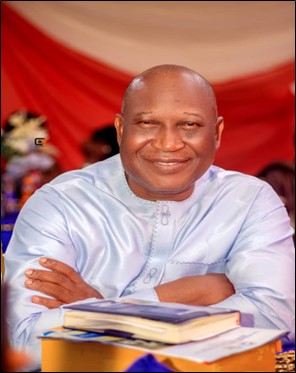
Humanitarian Work & Social Impact
Beyond the pulpit and the uniform, Major General Olukolade channels his energy into creating social impact. Through the Iyaniwura Foundation, he advocates for vulnerable groups and promotes general welfare, with a particular focus on improving lives in rural communities and advancing other humanitarian causes.
He has also collaborated with the Economic and Financial Crimes Commission (EFCC) on campaigns to reshape public attitudes toward corruption, emphasizing communication as a tool for changing mindsets. At civil society forums, he has urged Nigerians to resolve crises through dialogue and constructive engagement, warning against blindly importing destructive protest models from other nations.
The Softer Side: Hobbies, Family, and Values
For all his public responsibilities, Major General Olukolade remains grounded in the simple rhythms of personal life. He enjoys jogging, a discipline that reflects his belief in both physical fitness and quiet reflection. He plays badminton, volleyball, table tennis, and lawn tennis, enjoying the agility and camaraderie the sports demand. He is also a swimmer, finding in the water a rare calm away from duty.
His love for reading reveals the intellectual depth behind his public persona. From history to theology to contemporary affairs, books remain a constant companion. This hobby mirrors his lifelong devotion to communication — absorbing, reflecting, and sharing knowledge.
Family is central to him. Married to Abosede since 1989, they have raised two children, Boluwatife and Ayotunde, in a home marked by faith, discipline, and warmth. While he keeps his private life discreet, he often references family moments — dropping children at school, guiding them in faith — as reminders of the values that anchor him.
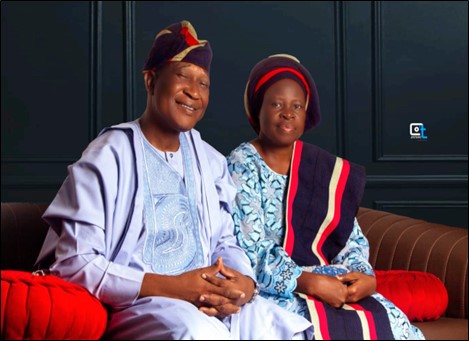
Legacy & Continuing Relevance
Major General Chris Olukolade’s legacy is layered. As a soldier, he embodied discipline and loyalty. As a spokesman, he redefined how the Nigerian military communicates with its citizens. As a pastor and humanitarian, he continues to serve beyond uniform.
His career represents a rare blend of duty and humanity. He reminds Nigerians that strength is not only measured by firepower but also by truth-telling, humility, and the ability to connect with people. In a country often strained by mistrust between state and society, his life’s work stands as a bridge — one built with words, integrity, and faith.
Even in retirement, his voice remains influential, urging reforms in security, governance, and civil society. Whether at a military symposium, a church pulpit, or a community forum, Olukolade speaks with the authority of experience and the conviction of belief.
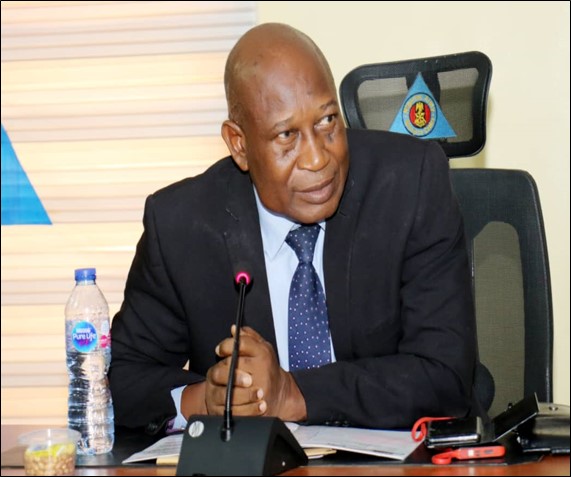
The Man Behind the Voice
To reduce Major General Olukolade to a military title would be to miss the essence of his story. He is a man who has worn many uniforms: the fatigues of a soldier, the suits of a public communicator, the robes of a pastor, and the humility of a humanitarian. Each role has been marked by service, discipline, and an unwavering sense of responsibility.
In the end, his journey reflects a truth as old as soldiering itself: that the strongest leaders are not only those who command but also those who communicate, care, and inspire.//
Major General Chris Olukolade is not just a retired officer. He is a bridge between Nigeria’s past battles and its future hopes — a voice that continues to call for duty, integrity, and humanity.
